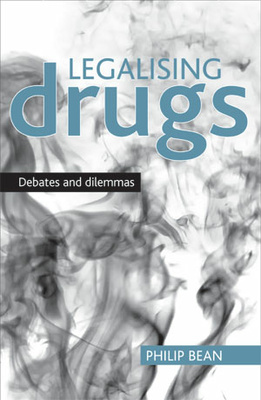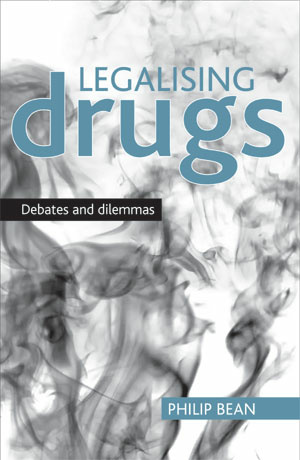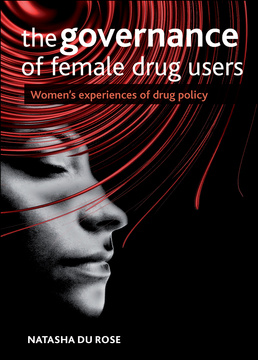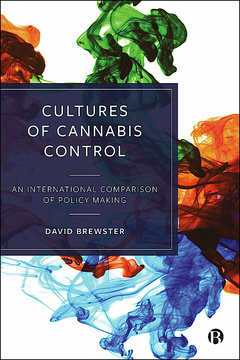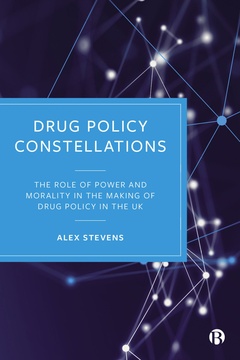Published
Jan 13, 2010Page count
168 pagesISBN
978-1847423757Dimensions
198 x 129 mmImprint
Policy PressPublished
Jan 13, 2010Page count
168 pagesISBN
978-1447300656Imprint
Policy PressPublished
Jan 13, 2010Page count
168 pagesISBN
978-1447300663Imprint
Policy PressGovernment policy has steadfastly been against drug legalisation, but increasingly critics have argued that this is unsustainable. This book is a timely examination of the issues this raises.
Numerous suggestions have been offered. Some seek complete legalisation, others a more modified form, yet still others want an increasing commitment to harm reduction policies.
Philip Bean examines the implications of these proposals for individuals, especially juveniles, and for society, when set against crime reduction claims. He concludes with the necessary questions a rational drug policy must answer.
The book will be essential reading for students and academics in criminology, sociology and social policy, as well as policy makers, practitioners and the general public.
"There is much food for thought in this small book, easily readable on the train, bus or plane for we must address this problem". Sally Ramage in the Criminal Lawyer
"An excellent book for specialist and non-specialist alike. Fantastic and thought provoking review of policy and how each choice of whether legalisation or prohibition has its wider implications." 5 star review on Amazon.co.uk
"The 'war on drugs' is pursued relentlessly, and yet the drug legalisation debate refuses to go away. In his new book Philip Bean addresses the complexities of this debate, and although his default position is prohibitionist he provides a balanced account of this moral and political minefield." Geoffrey Pearson, Emeritus Professor of Criminology, Goldsmiths, University of London
Philip Bean is Emeritus Professor of Criminology and Criminal Justice at Loughborough University and a former director of the Midlands Centre for Criminology and Criminal Justice. He is the author/editor of numerous books and articles, mainly in the fields of drugs and crime and mental disorder and crime. He has held visiting professorships in Canada, the US and Australia and was, from 2000 to 2005, an associate of the General Medical Council. From 1993 to 1999 he was secretary, and later president, of the British Society of Criminology.
Introduction; Prohibition, economic liberalism and legal moralism; Harm reduction, medicalisation and decriminalisation; Legalisation and crime; The special problem of juveniles; The community, the personal and the commercial; Some concluding thoughts.







